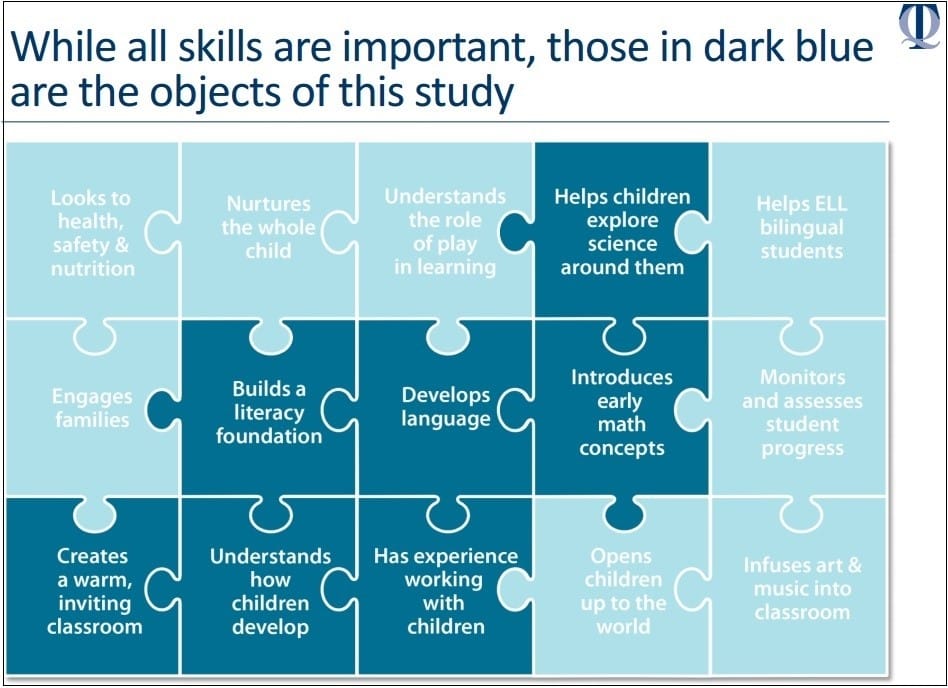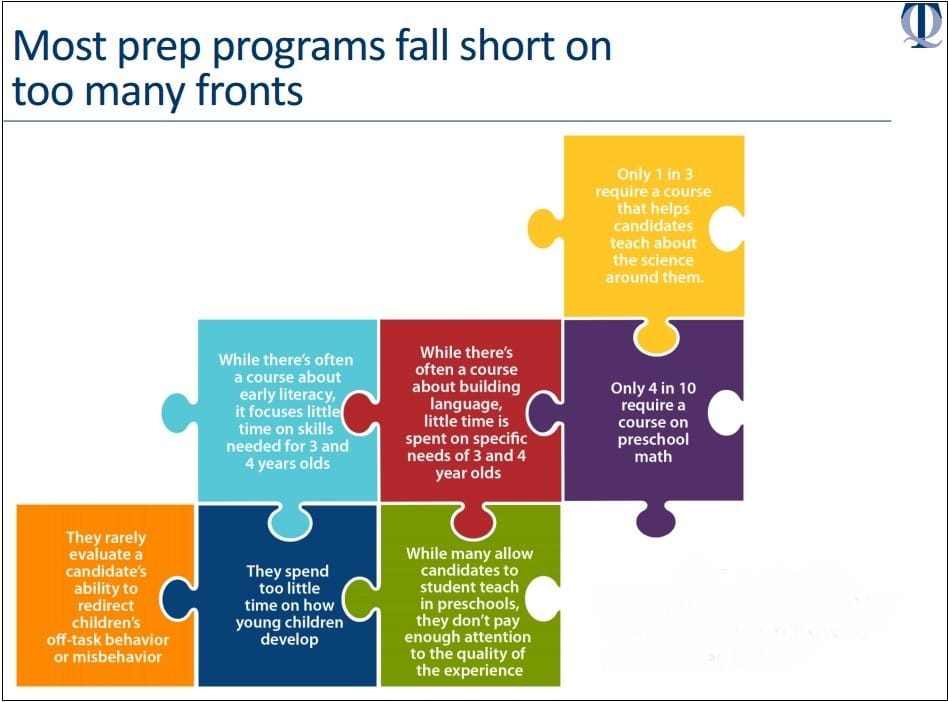The National Council on Teacher Quality (NCTQ) recently reviewed one hundred of the nation’s pre-K teacher preparation programs, attempting to answer whether pre-K teacher candidates are being adequately prepared for effectiveness in their future jobs. The answer is, largely, no.
The programs spanned twenty-nine states that certify pre-K teachers, most of them offering bachelor’s and master’s degrees. They reviewed course requirements and descriptions, course syllabi, student teaching observation and evaluation forms, and other course materials required for degree completion.
The bottom line, reported NCTQ, is that most of the programs spend far too much of their limited time focusing on how to teach older children rather than on the specific training needed to teach three- and four-year-olds. Some specific findings are neatly summarized in the following slides from NCTQ:


NCTQ recommends, among other things, that states narrow their licensure to certify educators to no more than the years between pre-K and third grade, rather than treating pre-K as a part of a broader elementary teaching credential; that they encourage teacher preparation programs to offer either more specialized degrees or early childhood education as an add-on endorsement; that they ensure that preparation programs require courses in critical areas such as emergent literacy, early childhood development, or early math and science; and that they encourage future pre-K educators to do their student teaching with highly effective preschool teachers.
All good suggestions, but also heavy lifts, especially for a states whose teacher preparation programs aren’t so hot to begin with.
SOURCE: Hannah Putman, Amber Moore, and Kate Walsh, “Some Assembly Required: Piecing Together the Preparation Preschool Teachers Need,” National Council on Teacher Quality (June 2016).
